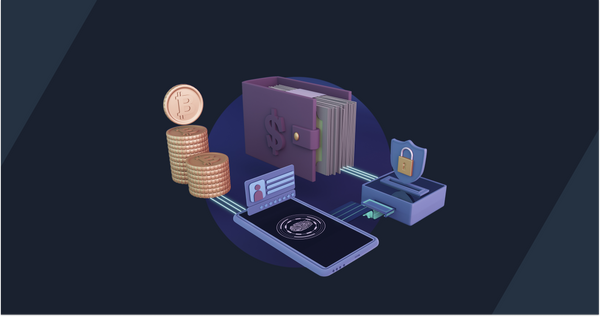Discover how FinTech is continuing to innovate payments!

Global payment infrastructures have undergone have undergone significant changes over the last few years. Largely in part because of the pandemic, consumers have now made it a habit to do most everything online, which has expedited the digitization of numerous different landscapes. The FinTech industry in particular is continuously evolving, and both introducing and keeping up with new, innovative payment solutions.
Customers prefer using their cellphones to make purchases by taking advantage of features like contactless payments because of how simple and convenient it is. For example, buy now pay later (BNPL) services like Afterpay are one of the more popular alternate payment methods.
While mobile and online payment methods have rapidly grown, and can safely be considered a norm and a default for a good majority of consumers, FinTech is continuing to make changes to the way payments are being processed, and how businesses are integrating these models. At the same time, this change in the current payments ecosystem also means consequent changes in regulations.
Many businesses across the globe are turning to online payment account providers—such as Paysafe and Stripe—to accept payments. These companies also offer card readers, which are still heavily relied upon by millions of users. These card readers support contactless Near Field Communication (NFC) transactions that employ physical payment cards and e-wallets like Google Pay, as well as Bluetooth for point-of-sale applications on smartphones.
By adopting integrated third-party payment solutions, businesses are able to fully automate payment acceptance and can offer their customers a quicker, frictionless checkout experience. This saves both the business and their customer’s time and money, and eradicates potential human error
Since FinTechs first began to hit the market, established financial institutions have been ready to acquire them. Sensing the shift in consumer preferences, they have built partnerships with FinTechs to gain access to tech talent, come up with better offerings for customers, and penetrate the market in a more nimble and efficient way.
In the last year, several big-name financial institutes have been making acquisitions of FinTechs. For example, American Express has acquired the online lender Kabbage. Such acquisitions will only continue to be made, and will contribute towards the collaboration of even greater payment ecosystems.
However, traditional institutions are not the only ones who are looking to gain an advantage through FinTechs’ ability to offer faster, more flexible payment services. Cryptos are soon to be next to take advantage of their agility. Many cryptocurrency businesses have realized that they must enter the FinTech sector as well if they are to compete with and ultimately surpass their rivals.
As a result of such acquisitions, not only will different financing sectors benefit, but consumers as well. They will reap direct benefits from the augmented pace of innovation and the development during this new age of digital finance solutions.
As digital payment methods such as e-wallets, bank transfer, and BNPL continue to gain popularity, firmer rules and stricter scrutiny will be implemented by global regulators. This presents consumers with far greater protection, but at the same time will begin inspiring new product innovation. The latest areas in FinTech and blockchain have prompted the attention of governments across the world due to their deregulated nature.
Some of the areas of progress will come by further developing new modes of identity verification which can better protect consumers by proving ownership of their assets. Customers repeatedly complete verification procedures, and the information is ensured to match the applicant to their documentation. The public’s exposure to fraud and data breaches have made this process more widely used, as traditional methods are no longer secure and reliable for customers.
In order to give the finest identity assurance and to safeguard their assets and information, identity verification also includes security checks, liveness detections, and numerous third parties that validate client data.
The existing payment ecosystem is evolving quickly, and it will continue to change over the next few years. The majority of companies have acknowledged and accepted that modern, digital payment methods will eventually replace conventional ones and that what they have to offer are: automated payment methods, improved security, mobile, and contactless methods that deliver a better consumer experience.
Although the complexity that comes with improving capabilities and enforcing stricter regulations may be difficult, it will ultimately spur the creation of new goods and services that can provide better answers to consumers’ changing needs and assist businesses in taking the necessary actions to keep up with changes in the payments landscape.
FinTech is the combination of Finance and Technology. In simple words, it means using technology to make finance easier, faster and smarter. FinTech is a relatively new concept in the financial industry. However, FinTech is gaining popularity and acceptance among banks, credit unions, and even non-financial companies.
The main driver is AI software. AI software can help financial institutions make quicker decisions. AI software can analyze data and provide recommendations based on past behavior. AI software can also predict future trends and patterns. AI software can help financial institutions manage large transactions. AI software. Financial institutions use AI software to answer questions and resolve problems. AI software can also offer live assistance to customers. Moreover, chatbots are a type of AI software that can interact with customers via text messages, phone calls, or video chats. Chatbots can respond to customers’ questions and solve problems. Chatbots can also schedule appointments and remind customers of upcoming events.
The creation and application of cryptocurrencies is also a part of fintech. Cryptocurrencies are a special kind of technology that have the potential to revolutionize every area of the financial industry, from lending and trading to investing and payments

We create transparency for a global economy built on blockchains.